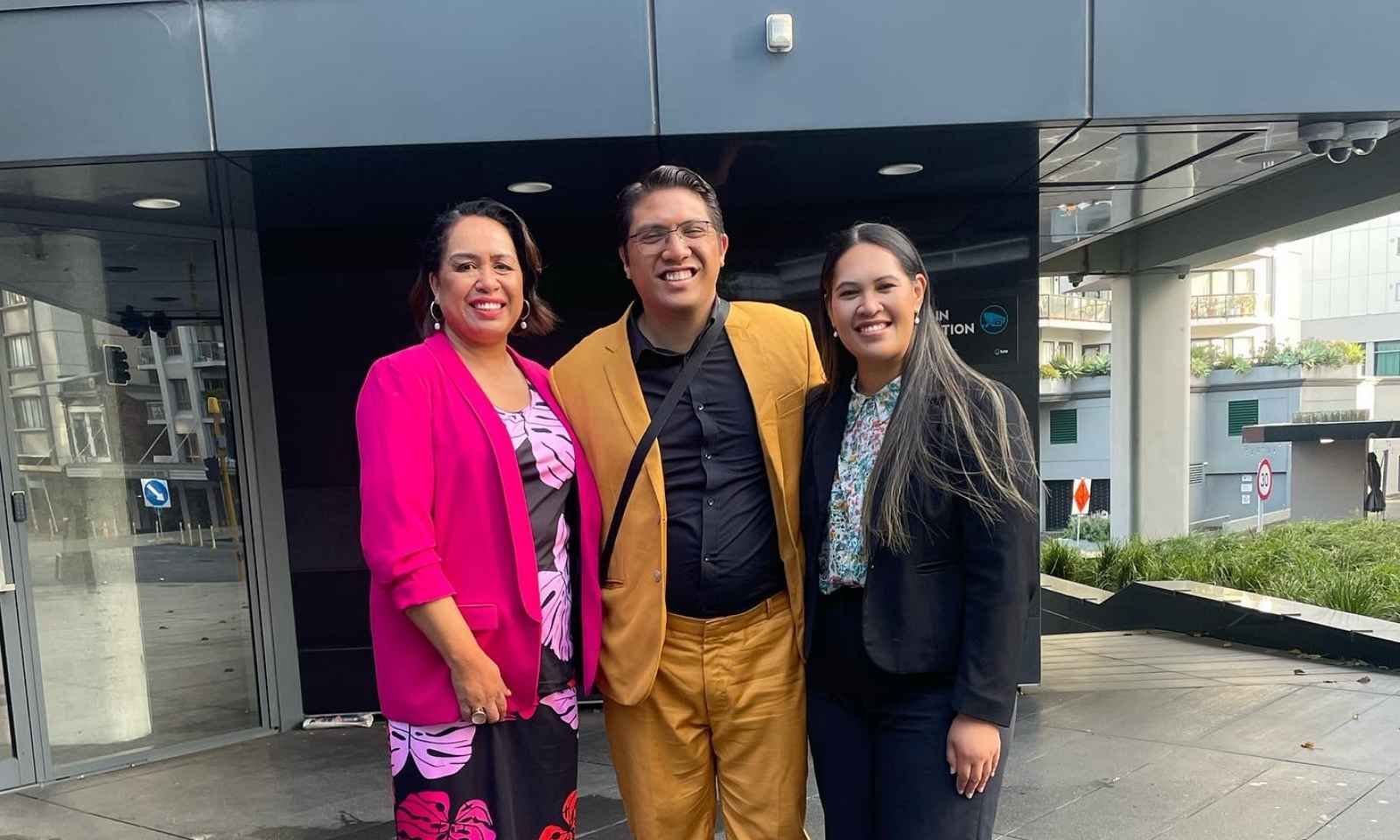

Scenes from the ground of one of New Zealand’s most contentious times in history.
Photo/PMN News/William Terite.
Protest sparks national dialogue on Treaty Principles Bill
Thousands gathered in Wellington for a hīkoi against the proposed legislation, fuelling concerns over democracy, Māori sovereignty, and New Zealand’s history and future.



Tackling a health emergency: Pacific Tag tournament raises dementia awareness


NZ-born toddler denied visa despite severe brain injury and faces risk of unlawful status


Sāmoa backs visa-free travel petition as Pacific leaders reject ‘mass migration’ concerns

Tackling a health emergency: Pacific Tag tournament raises dementia awareness


NZ-born toddler denied visa despite severe brain injury and faces risk of unlawful status
Thousands gathered in Wellington today for the hīkoi opposing the Treaty Principles Bill (TPB), sparking discussion between Pacific leaders and political commentators.
The hīkoi began over a week ago in the Far North and southern end of New Zealand and culminated in a significant demonstration at Wellington's Waitangi Park before marching to Parliament.
Crowds carrying Tino Rangatira flags protested the Treaty Principles Bill (TPB), introduced by ACT Party leader David Seymour. The bill aims to redefine the principles of the Treaty of Waitangi Act, igniting widespread controversy and debate across the nation.
Speaking to William Terite on Pacific Mornings, Christian Malietoa-Brown, political commentator and head of National's Pacific Blues, had mixed views on the event.
"All of that is a good part of democracy; it's a fundamental right to be able to protest and to make your views known," he said.
"But there's a lot of other stuff in the background that probably I don't agree with in terms of the hīkoi."
Community leader Dave 'Buttabean' Letele was at the hīkoi and said he supported many other nationalities.
"I support it because we're standing up for what's right”.
"We're standing up and letting this government know, not just this government but all governments know, that the power of the people - we're still here, that we matter.”
Watch the full panel via 531pi's FB below:
Getting into the detail
The bill outlines three fundamental principles: complete governmental sovereignty, safeguarding Māori rights as established in historical Treaty settlements, and ensuring equality before the law without discrimination.
Malietoa-Brown, who supports the Bill, emphasised the need to distinguish between the Treaty of Waitangi and the 1975 Treaty of Waitangi Act, which established the Treaty's principles.
He argued that a national referendum like the bill could resolve the varying interpretations of the Act's principles.
"What the Treaty Principles Bill is trying to address is to go back to what they believe the Treaty said, instead of letting the courts decide the interpretation of the Treaty, which is how democracy is supposed to work.”
Although Malietoa-Brown acknowledged the potential risks of a referendum, he said he’d respect the outcome, as long as democracy is exercised.
"It is a bit of you're damned if you do, damned if you don't, but I think real leadership demands that we give some kind of clarity for this country.”

From left: National list MP Fonotī Agnes Loheni, Pacific Blues chair Christian Malietoa-Brown and Te Atatū candidate Angee Nicholas. Photo /Supplied.
Letele said a referendum could aggravate further division across the country and agreed with former Prime Minister Dame Jenny Shipley's remarks towards the bill.
"[Shipley’s] right, it will cause civil war.
“No one can just do this. No one can just say, ‘look, we're going to rewrite these principles’, let alone the ACT Party or David Seymour.
"If they try and take [it to] a referendum, looking at the turnout here, it's not going to be good for Aotearoa, it’s not going to be good for New Zealand.”
Malietoa-Brown stressed the importance of open dialogue and leveraging democracy for a solution.
"I think threatening with civil war presupposes that we can’t have a proper conversation with each other as people of this country,” he said.
"That’s very worrying. I think we, as New Zealanders, are mature enough to have this debate.
"If you want to change that, you should put it on the ballot in an election, or you take it directly to the citizens for a vote.”
Both agreed the issue was not going away, and Letele had two words of warning for the government.
"The turnout that's here today - literally those two words: one term. They should be very, very worried."